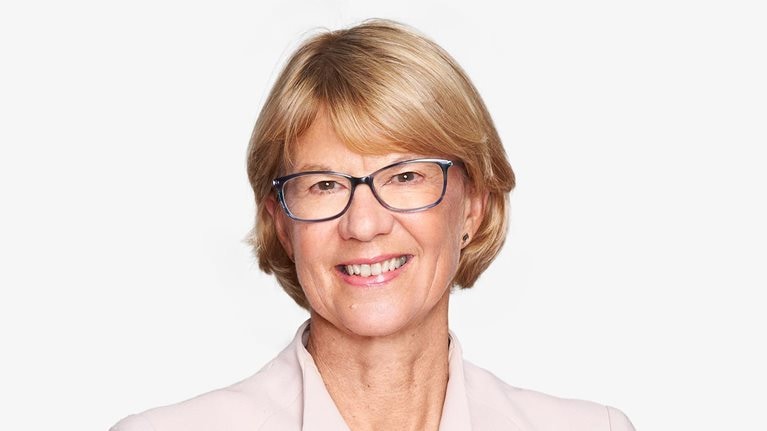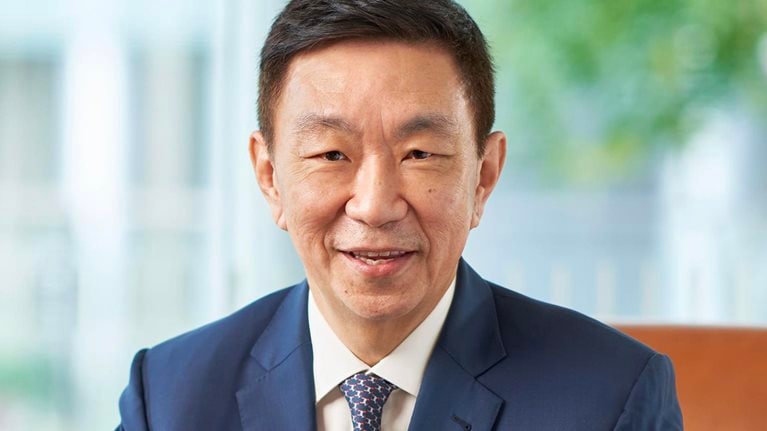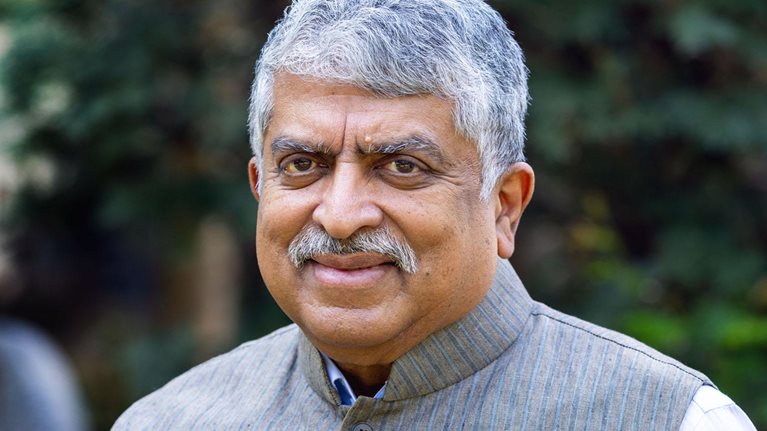This interview is part of the Leading Asia series featuring in-depth conversations with the region’s most influential leaders on what it takes to lead in Asia today.
Natural disasters, including bush fires, Category 5 cyclones, and devastating floods. A royal commission investigating industry-wide misconduct. A global pandemic. These events would be difficult scenarios for many leaders. But for Anna Bligh, the CEO of the Australian Banking Association (ABA), which comprises 20 participating banks, crises are opportunities to make a positive transformational impact. “When I look back on the big decisions I’ve made, I see that I’ve always been drawn to the fire,” she says. “I’ve always been attracted to roles where there was something important happening and I could make a difference. And very often there were big problems.”
The COVID-19 pandemic was only the most recent in a series of career-defining crises that Bligh has managed. When the pandemic struck, she coordinated the Australian banks’ unified response, which allowed customers to suspend repayments on nearly a million mortgage and business loans for at least half a year, without penalty to their credit ratings.
Under Bligh’s leadership, the reputation of Australian banks is slowly being rehabilitated. She joined the ABA in 2017, when public perceptions of the financial sector were at an all-time low and a Royal Commission was investigating severe industry-wide misconduct. Bligh quickly set out to reform the sector by updating the Banking Code of Practice. Earlier, as premier of Queensland, she led the response and reconstruction effort in the wake of the floods and cyclone that affected nearly 80 percent of the state in 2011.
In this Leading Asia interview with McKinsey’s Olivia Loadwick, Bligh reflects on her experiences navigating tough scenarios. Bligh explains how she keeps herself physically and mentally prepared for crisis and why, despite the current heightened state of economic uncertainty, savvy business leaders who shift their mindsets may spot opportunities that generate value for everyone. This interview has been lightly edited.
McKinsey: What are the essential ingredients for crisis leadership?
Anna Bligh: First, it’s just the incredible importance and power of good communication. “You can’t overcommunicate in a crisis” is a bit of a motto of mine. As human beings, we get a lot of comfort from a feeling of being in control of our lives. When everything goes “pear shaped”—such as when your suburb is about to be flooded, and your children, your family, and your home are at risk—the information that you need must be really clear. You need to get it in time, and you need to have confidence that the people who are giving you the information, whether it’s myself or the police commissioner or somebody else, are telling you everything you need to know.
It’s a time for telling people the absolute, unvarnished truth, as hard as that may be to hear. What people want to know is: “The bridge is closing in ten minutes. You need to get there.” When people have the information they need, then they feel like they’re back in control and they know what to do. A crisis is not a time to be filtering or worrying about reputation.
Next, I do think there is something about courage. One of the definitions of a crisis is that you have to make high-stakes decisions in really suboptimal environments. You will not get all of the information. You won’t have the time to peer-review, over a number of weeks, the full range of options. You may only have an hour to make a decision that is going to impact potentially real life-and-death situations. It requires a lot of courage to make that call. We’ve all seen very indecisive leaders, from time to time, where not making the call can be catastrophic.
But I think that hand in hand with the courage to make the call is a willingness to accept responsibility for the call. When you make a hard call in a situation like that, you need to be able to convey to everybody around you, particularly those who have to execute the decision, that “I’ve made this call, it’s on my shoulders. If it goes wrong, it’ll be mine, not yours. I’ve got your back; now go and execute.”
McKinsey: How do you make decisions when you don’t have all the information you need?
Anna Bligh: To the extent that you can, be rigorous in finding out all the facts, getting all the advice, and testing it with people you trust in a very, very fast time frame. Then you may just have to pick the least bad option.
One example that probably didn’t get a lot of airplay, because there was so much else happening at the time, happened during the Queensland floods and cyclones in February 2011. The Cairns Base Hospital is on the Esplanade in Cairns, which overlooks the ocean. It’s very beautiful but also a very bad location for a hospital if there’s a Category 5 cyclone. We were told that there was a chance that the cyclone was going to hit Cairns and the hospital in a day or so. If that happened, the hospital, the electricals, generators, everything would go. But there was also the chance that the cyclone could turn one way or another at the last minute.
To the extent that you can, be rigorous in finding out all the facts, getting all the advice, and testing it with people you trust.
I had to make a decision whether or not to evacuate the hospital and transfer all the patients to Brisbane. The whole operation had never been done before and would take 24 hours and was incredibly high risk: we had neonatal ICU [intensive-care-unit] patients and people who were literally one hour out of surgery. The only people who had even the rudimentary skills for this were some defense force personnel who had experience setting up medical staging posts in war zones.
I made the call to evacuate, and we successfully transported all the patients in the pouring rain. We put them in ambulances and flights and relocated them about 2,000 kilometers1 away. In the end, the cyclone spared the hospital and hit about 200 kilometers south of Cairns. We didn’t lose even one of these patients, even though it could easily have happened. If one person had died and the cyclone didn’t hit, there would have been a Royal Commission on my decision.
But at the time, all that I could do was to make decisions based on the facts that I had in front of me. I took the view that while we might endanger some of those patients in an evacuation, if I chose not to and the cyclone hit the hospital, all of the patients would be endangered. Even though the cyclone never came, I still think it was the right call, but it could have gone terribly wrong.
McKinsey: What about from a personal-care point of view? How do you take care of yourself to be ready for a crisis?
Anna Bligh: Well, it’s the nature of crises that they don’t send a “save the date” notification; you never know they’re coming. If you knew they were coming, you could have planned for it, and it wouldn’t be a crisis. So it’s the nature of the beast—that’s one thing. Two, you won’t know if it’s a one-day crisis or a 15-day crisis or more. So if you assume the responsibility of leadership, then that brings with it a responsibility to make sure you are always ready to be “on.”
I don’t think we talk enough about self-care in the leadership space. There’s a lot of hard work and late nights. All of that’s unavoidable, but the basics matter. I believe in regular exercise, in setting aside thinking time for myself, so that my mind isn’t always too busy. Also, eating well. Sure, have champagne on your husband’s birthday, but maybe not five, six glasses, because the crisis could come that night. There’s a very big intersection between personal responsibility and personal care when it comes to leadership.
Because you really are putting yourself in a situation when you assume the role. You’re really assuming a responsibility, often, for people’s safety as well as for the security of the business or the institution you’re in charge of. You’ve really got to be physically and psychologically up for that task. I can’t overstate the importance of making sure you’re well, mind and body, and taking care of that as regularly as you can. None of us are saints. But this is a big part of being a leader.
As for courage, I do think it’s something that leaders have to be able to summon. For me, it actually does feel like I have to call on something that I don’t have to use all the time. It’s quite a physical feeling. But I also have what I call “Jedi mind tricks.” I actually talk to myself, and I say, “No one else here has the authority to do this. There’s only one person in the room who can. Either you’re going to do it, or you have to walk out and give the job to someone else.” It’s that kind of coaching, pushing myself.
McKinsey: The global economy is facing significant headwinds: the lingering effects of the pandemic on supply chains, climate change, and geopolitical instability. How do you see some of the challenges playing out, and how should business leaders respond?
Anna Bligh: We often live in interesting times, but these are particularly interesting. I think we can probably anticipate that as we decarbonize, we’ll have to deal with the impact of global warming in the form of natural disasters and displacement. Managing global conflict is probably also going to be something we’ll have to get a lot better at over the next couple of decades.
But look at the circumstances ahead and think, “OK, here are challenges that we have to deal with, but where’s the opportunity?” When I think about the massive global effort, of which Australia is a part, to decarbonize the economy over the next couple of decades and about the rapid acceleration of the digital economy, I see the most extraordinary opportunities.
Australia is uniquely placed to take advantage of some of those big moves. Yes, they’re going to mean changes. Yes, there’s going to be parts of the transition that are harder for some people and some parts of the economy than others. But Australia also has some of the most extraordinary locations for solar and wind power in the world. We are very well-placed for hydrogen. We are one of the major nations that can supply critical minerals to the digital economy. And those are just three opportunities. But what needs to go with that is making sure that we’ve got the skills, the investment, the resources, and the mindset to build on top of that and make Australia one of the leading countries in this transition.
If I think about banking and finance globally over the last, maybe, five to six years, there’s been a very big pivot from the banking sector seeing climate change simply through a risk lens. People used to ask, “How do we protect our investments from changing climate? How do we get out of and exit sectors which might end up with stranded assets?” Now people in the sector are thinking, “Actually, if we’re going to successfully transition as an economy, as a community, we need to be actively funding and investing.”
There is a real opportunity here for banks to be partnering with companies large and small to make that transition happen. There are opportunities not only to increase shareholder returns and prosperity for workers but also for banks to build partnerships, to think differently about their relationship with their customers, and, out of all that, to enhance their reputation. It probably sounds like I’ve got rose-tinted glasses on, but I do think that if we shift our mindset to focus on the opportunities and the best of this, Australia as a whole can really benefit.
McKinsey: Speaking of mindset shifts, you spearheaded an effort that saw Australian banks enter into a new partnership model that had a huge impact on the rest of society during the pandemic. Were there any lessons that endure as we look ahead?
Anna Bligh: Australia’s banks have had quite a lot of experience in working with their customers one-on-one when a customer goes through some kind of event, like a flood or they lose their job. But the COVID-19 pandemic gave banks the opportunity to do something collectively in a moment of national terror.
If you think back to those early weeks, people had no idea what was happening to their jobs, whether they would have any income. It was absolutely terrifying. In the middle of all of that, it didn’t feel like a moment for banks to compete for customers. It also didn’t feel like a moment when it’s right to just deal one-on-one with customers, because the scale of this is going to be beyond anything we’ve seen before.
It was a moment when banks could collectively say, “It doesn’t matter who you bank with. If you need a relaxation on your loan repayments, we will give you a deferral, and it will be on the same terms no matter which bank you bank with. It will be simple and online.” Effectively, banks became shock absorbers while we went through the impact of this pandemic.
I think every bank involved in that would now say this was an incredibly important thing. If we’d had 22 different responses from 20 different banks at a time when people were already overloaded with too much information about health and viruses and travel restrictions and everything else, it would only add to the confusion. So banks really needed to come together. To their credit, they all saw the kind of wisdom of one product, one message, absolute clarity—which I suppose goes back to my earlier point that you can’t overcommunicate in a crisis, and you have to have absolute clarity and simplicity in what you’re saying.
Now, in normal circumstances, I think the best thing for customers is to have highly competitive banks. You never want to get rid of that competitive streak in banks. So part of the learning, in the long term, is in what circumstances is it appropriate for the banking industry—and the finance industry, in some cases, more broadly—to act collectively versus competitively?
We all expect that competition is going to be the answer in the overwhelming majority of cases. But as we think about the big transitions that households and small businesses and large businesses are going to be making as they change their energy mix, change their emissions, we should be asking what, if anything, should banks think about collectively? That’s a major lesson out of COVID-19.
Note: The article’s headline has been revised to better reflect the interview’s focus on managing crises.


